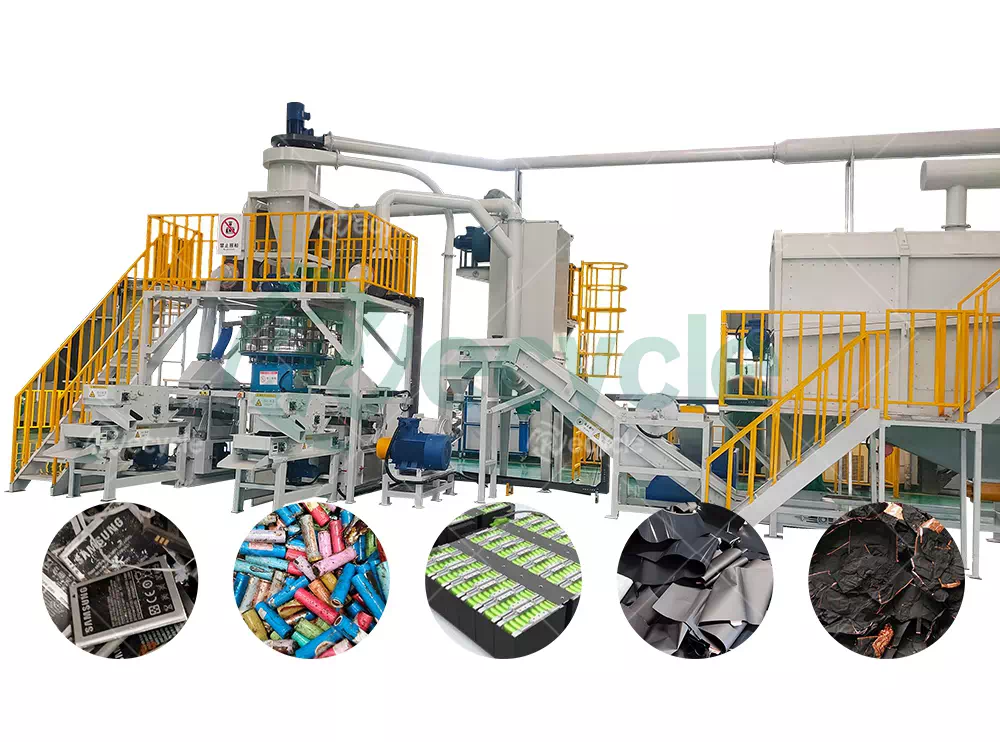News
Lithium-ion battery recycling technology equipment
Time:2024-03-14 15:12:31
Lithium-ion battery recycling is becoming increasingly important as the use of lithium-ion batteries continues to grow in various industries including electric vehicles, consumer electronics, and renewable energy storage. To solve the recycling problem of lithium-ion batteries, specialized technology and equipment are required. The following are some key technologies and equipment for lithium-ion battery recycling:
Battery classification and pretreatment:
Battery sorting and preprocessing involve separating different types of batteries and removing their casings. Use pre-processing equipment such as mechanical shredders, scissors, or crushers to break down the batteries into smaller pieces for subsequent steps.
Battery crushing:
Battery shredding is a critical step in lithium-ion battery recycling as it helps further reduce the size of battery components. The battery pack is mechanically broken down into smaller pieces using a specialized shredder. These shredders are designed to address the unique challenges posed by lithium-ion batteries, such as their flammability and potential for thermal runaway. These shredders often have safety features and controls to reduce the risk of fire or explosion.
Lithium-ion battery recycling technology equipment
Carbonization treatment:
The carbonization process is used to further process battery components and recover valuable materials. These processes involve heating the battery material at high temperatures to separate it into its constituent elements. With a continuous carbonization furnace, the metal can be extracted for reuse. However, it is important to note that heat treatment should be carried out under controlled conditions to minimize environmental impact and ensure worker safety.
Battery recycling plant infrastructure:
Battery recycling plants are equipped with specialized infrastructure to handle the unique challenges associated with lithium-ion battery recycling. These facilities employ safety measures such as fire suppression systems, ventilation systems, and isolated areas to mitigate the risk of thermal runaway, fire, or explosion. Advanced monitoring systems are used to ensure the safe and efficient operation of the recycling process.
Post-processing and refining:
After the initial recycling process, the recycled material may undergo additional refining to improve its purity and quality. Technologies such as electrolysis, solvent extraction, and electrolytic refining can be used to further purify the recovered metals, ensuring they meet the specifications required for reuse in battery manufacturing.
Lithium-ion battery recycling technology and equipment continue to evolve to improve efficiency, increase material recovery rates, and minimize environmental impact. The development of new processes and equipment developed by Henan Recycle plays a vital role in ensuring the sustainable management of lithium-ion battery waste and the protection of valuable resources.
LATEST NEWS
CONTACT US
Tel: 0086-13674945231(whatsapp)
Email: sunymachine@gmail.com
Add: Henan Communication Industrial Park) 5th St., Economic-Technological Development Zone, Zhengzhou
